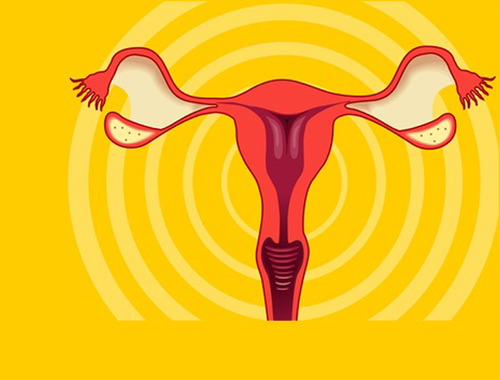Ovarian cancer is a group of diseases that originates in the ovaries, or in the related areas of the fallopian tubes and the peritoneum. It is the second most common gynecologic cancer in the United States. The most common tumor type is high-grade serous carcinoma, occurring in about 70% of ovarian cancer cases.
UT Southwestern researchers report they have discovered what appears to be an Achilles’ heel in ovarian cancers, as well as new biomarkers that could point to which patients are the best candidates for possible new treatments.
Their findings are published in the journal Cell in a paper titled, “Ribosome ADP-ribosylation inhibits translation and maintains proteostasis in cancers.”
“Defects in translation lead to changes in the expression of proteins that can serve as drivers of cancer formation,” wrote the researchers. “Here, we show that cytosolic NAD+ synthesis plays an essential role in ovarian cancer by regulating translation and maintaining protein homeostasis.”
“Many researchers are trying to find dependencies in cancers by asking why a cancer cell amplifies a gene, increases the levels of a protein, or upregulates a critical cellular pathway. These changes give that cancer a selective advantage, but at the same time they can become an Achilles’ heel—something that, if the alteration was blocked, would kill the cancer or stop its growth,” explained W. Lee Kraus, PhD, professor of obstetrics and gynecology and pharmacology and a member of the Harold C. Simmons Comprehensive Cancer Center.
Kraus and his team, including lead author Sridevi Challa, PhD, a postdoctoral researcher in the lab, found that ovarian cancers massively amplify an enzyme, NMNAT-2, that makes NAD+. The researchers found that one PARP family member, PARP-16, uses NAD+ to modify ribosomes, the protein-synthesizing machines of the cell.
The obstacle that the researchers had to overcome is that a single ADP-ribose group attached to a protein is difficult to detect. The researchers developed a synthetic mono(ADP-ribose) detection reagent made up of natural protein domains fused together, which can be used to detect ADP-ribosylated proteins in cells and patient samples.
In collaboration with UT Southwestern clinicians, led by Jayanthi Lea, MD, professor of obstetrics and gynecology and a member of the Simmons Cancer Center, Kraus and his team screened human ovarian cancer patient samples using the mono(ADP-ribose) detection reagent to identify those with low or high levels of mono(ADP-ribose).
“We were able to show that when ribosomes are mono(ADP-ribosyl)ated in ovarian cancer cells, the modification changes the way they translate mRNAs into proteins,” Kraus said.
“The ovarian cancers amplify NMNAT-2 to increase the levels of NAD+ available for PARP-16 to mono(ADP-ribosyl)ate ribosomes, giving them a selective advantage by allowing them to fine-tune the levels of translation and prevent toxic protein aggregation. But that selective advantage also becomes their Achilles’ heel. They’re addicted to NMNAT-2, so inhibition or reduction of NMNAT-2 inhibits the growth of the cancer cells.”
Mono(ADP-ribose) and NMNAT-2 were identified as potential biomarkers for ovarian cancers, which can help clinicians to determine which ovarian cancer patients may respond well or not.
“No PARP-16 inhibitors are currently in clinical trials, but labs in academia and the pharmaceutical industry are developing specific and potent inhibitors of PARP-16. Such a drug could be an effective therapeutic for treating ovarian cancers,” he said.
“Kraus’ research is not just a great advance in basic science. It has real promise for clinician investigators and cancer care practitioners because it shows a biomarker and a pathway a future drug could target. The fact that technology developed in his laboratory helped make these findings shows how our faculty builds on their findings to break new ground,” said Carlos L. Arteaga, MD, director of the Simmons Cancer Center.
Other researchers who contributed to this study include: Beman R. Khulpateea, Tulip Nandu, Cristel V. Camacho, Keun W. Ryu, Hao Chen, and Yan Peng.
“Collectively, our results demonstrate that ribosome MARylation promotes protein homeostasis in cancers by fine-tuning the levels of protein synthesis and preventing toxic protein aggregation,” concluded the researchers.


